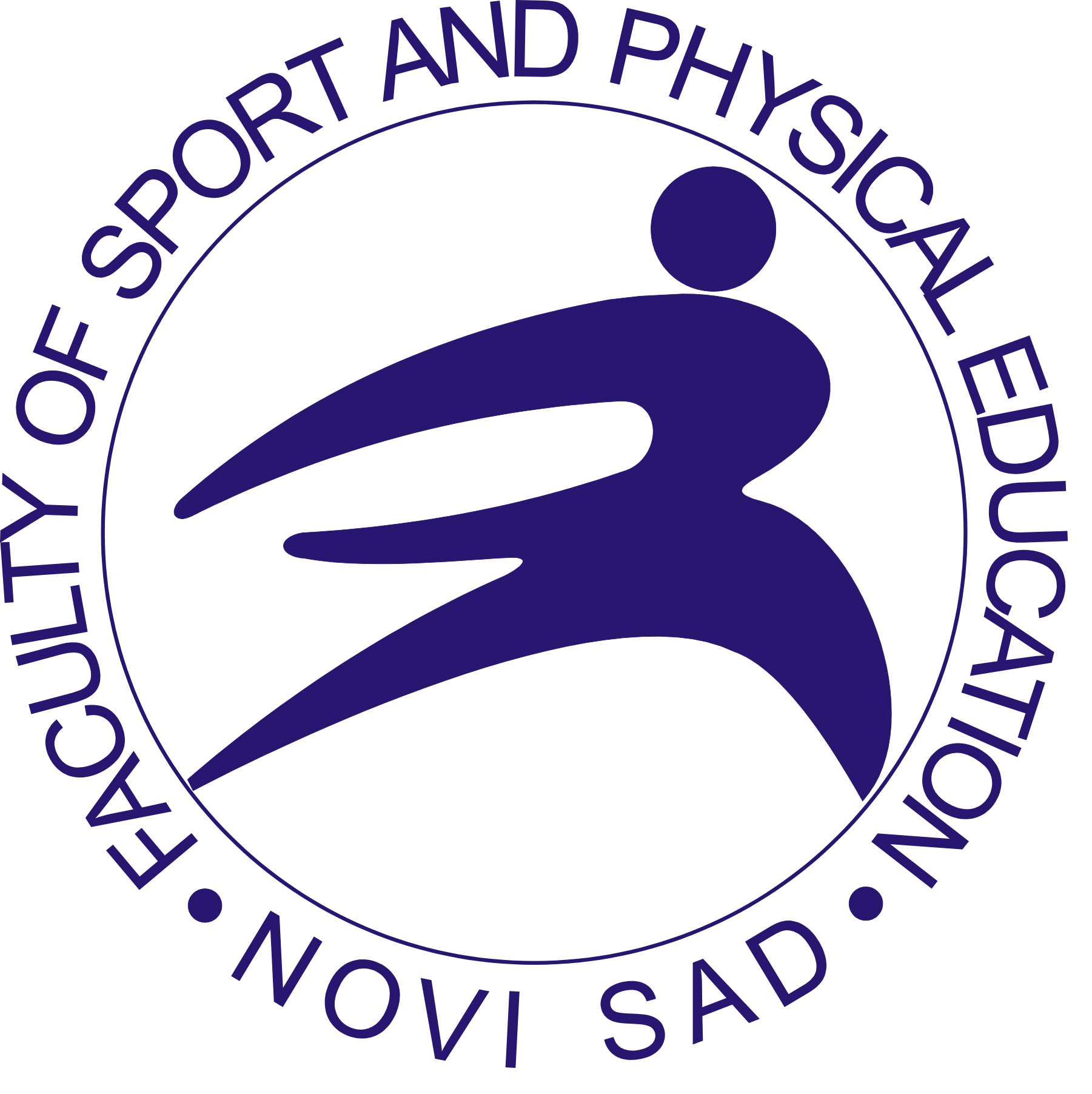Vol 10, No 2 (2018)
Published: 15.12.2018.
Authors in this issue:
Athanasios Anastasiou, Dimitris Hatzimanouil, Georgios Zarotis, Iordanis Stavrianos, Karolina Berenji, Konstantinos Gkagkanas, Milan Jelić, Milenko Janković, Miroljub Ivanović, Sandra Vujkov, Uglješa Ivanović, Vasilios Kaimakamis, Vasilios Tsimaras, Vasilis Skandalis, Zoran Milić,
Edited by:
Danilo Radanović
Author guidelines
Editorial Policy
35
Issues213
ArticlesBECOME A REVIEWER
We invite you to become an Exercise and Quality of Life reviewer.
BECOME GUEST EDITOR
Exercise and Quality of Life runs special issues to create collections of papers on specific topics.
Archive
See all
Volume 18, Issue 1, 2026
Volume 17, Issue 2, 2025
Volume 17, Issue 1, 2025
Volume 16, Issue 3, 2024
15.12.2018.
Original scientific paper
Differences in the achievement motivation in young football players and non-athletes
There was lot of previous researches about achievement motivation, but also not lot of comparisons between young footballers and nonfootballers. This article intends to improve psychological way of working with young sportsmen and help to coaches how to approach in positive way to young person. The main objective of this research was to determine the differences in the level of achievement motivation at boys age 10-14 years (N=200) in relation with sport status, school success and economic characteristics who were divided into 2 subsamples: who are/or not engaged in football. In this study, for data collection the MOP2002 scale was used (Franceško, Mihić, & Bala, 2002). For the purpose of data processing in this study were used methods of descriptive and multivariate statistics (t-test, canonical discriminant analysis, F-test). Application of canonical discriminant analysis which showed that the discriminating canonical correlation function of 0,39 (λ= 0.86; χ2 = 22.40; r = 0.00), which means there is a statistically significant difference regarding the structure of the achievement motivation. The results of the research indicate that engagement in football by an individual causes the higher level of the achievement motivation, with the most pronounced contribution by the component “persistence in achieving goals”, and then “goals achievement as a source of satisfaction”. Also, the results show that the economic status of the family didn’t contribute to differences in achievement motivation of their children, and difference in the school success of the respondents is followed by level of its motivation.
Milan Jelić
15.12.2018.
Original scientific paper
Prediction of mental health among cadet football players based on the emotional intelligence and perfectionism
The aim of this research was to examine in which way the constructs of emotional intelligence and perfectionism predict mental health of adolescent football layers. The sample consisted of 164 participants (average age 16.63 (± 10,21) years). The research was conducted in April 2018 and it included the cadet football players from KolubaraMacva league in Serbia. Test of Emotional Management (TUE; Babić-Čikeš i Buško, 2014), Multidimensional Perfectionism Scale (MPS; Frost et al. 1990) and Mental Health Inventory (MHI-38; Veit & Ware, 1983) were used to generalize data. During the process of data analysis, metric characteristics of the measuring instruments were first tested using the method of internal consistency which was based on Cronbach's alpha coefficient. The empirical findings of the correlation analysis revealed that there is no link between emotional intelligence and mental health of football players, meaning that managing emotions is only linked to adaptive dimensions of perfectionism (p ≤ 0,01). The obtained coefficient of multiple determination (R = 0.27) indicated that the group of predictors accounted for 27% of the variance of mental health, meaning that the perception of non-adaptive traits of perfectionism: (a) worry about mistakes, (b) dilemmas regarding one’s own actions and (c) parental criticism contribute the higher number of mental health problems. In addition, it showed that the adaptive trait of perfectionism (organizational skills) directly contributes better mental health of cadet football player. The results of this study suggest that the variables of emotional intelligence and perfectionism have significant role in prediction mental health among adolescent football players.
Miroljub Ivanović, Uglješa Ivanović
15.12.2018.
Original scientific paper
Gender differentiation in tactical options in defense and attack on beach handball
Although beach handball comes from the sport that is played indoors it has significant differences from it. The aim of the study was to investigate and compare tactical options in both defense and attack between men and women. In 16 games from 2017 European Beach Handball Championship, 1074 attacks and defense situations were analyzed, in order to examine different attack and defense tactics. The selected method was video-analysis. The ꭓ2-test was used to compare the differences between the formations in defense and attack. In defense the results showed that men use more often 3:0, 2:1C and 2:1L formations, while women use more often 3:0. From the comparison between men and women it appeared that, in the initial formation of defense, there are significant differences, while in the final tactical formation are minimal. Men, in the initial and final tactical option in attack, used the system with one pivot and the specialist in center. Women use the same formation but also the one with a pivot and specialist at the left side of the attack at the substitution area. In the initial attack formation, appeared few significant changes between men and women, while in the final tactical formation there were no changes. Finally, the final throwing attempts, men choose to make them mainly from the center while women from the right and from the center. In conclusion, we can say that men’s and women’s tactical choices in defense and offense show some differences, but these differences are small.
Konstantinos Gkagkanas, Dimitris Hatzimanouil, Vasilis Skandalis
15.12.2018.
Original scientific paper
Inclusion of preschool children into organized activity in leisure time
All physical activity of preschool children during the day occurs while they are in kindergarten or during their leisure time. The aim of the study was to present the results related to the participation of children in organized activities during leisure time and what is the perception of parents about the scope of their children's physical activity and the time spent on watching TV, using computers and playing video games (as a part of wider study). The research was conducted in 2017 in the Preschool institution “Naša Radost” in Subotica. The survey questionnaire was filled in by 135 parents for children of the average age of 5.14 years (±0.91). The survey questionnaire contained questions about children's nutrition (NutriStep survey) and their involvement in organized activities with educational and sports-recreational content during leisure time, as well as parent’s opinion on quantity in child’s sedentary activities. 65.9% of children aged 5 to 7 was found to attend some kind of organized activity, most often within programs of foreign language schools, sports schools and programs with aesthetic presentation of skills is important (ballet, dance and folklore). The largest number of parents reported that their child spent one hour watching TV, using a computer or playing games. About 71% of parents reported that their child was physically active enough. In both cases, a statistically significant difference was found between boys and girls. Within the family circle and within the educational institution, where children spend most of the time, it is necessary to provide conditions for undisturbed growth and development. One of the best ways is through exercising physical activity.
Milenko Janković, Karolina Berenji, Zoran Milić, Sandra Vujkov
15.12.2018.
Original scientific paper
Fitness- and Healthcenter evaluation by resigned members
The aim of the study is to examine if and to what extent the evaluations of fitness studios by persons who have recently resigned from their membership are related to general studio conditions such as studio atmosphere, facilities, trainer’s competence and other features. In other words, the question is whether there are typical prioritizations on positive or negative evaluations by dropouts from fitness sport. In the survey a total of 225 people, who had quitted their membership in the past, were questioned in a telephone inquiry. The study was conducted in a health-oriented fitness center in a major city in Germany. At the time of the study the fitness facility had up to 1.151 memberships. Among them, 59% of the members were women and 41% were men. The average age of the respondents was 43.5 years. The average duration of membership added up to 4.4 years. Overall, the various aspects of the studio offer and its surroundings were mostly rated as “good”. The respondents appreciated particularly the coaches (friendliness, helpfulness, competence), followed by opening hours, trial training and the first impression. The membership costs and individual aspects such as space, music and ventilation are assessed more critically, if not really badly. The data show that the various evaluation aspects were clearly assessed differently by the respondents, and that there was apparently little generalized information on the studio evaluation.
Georgios Zarotis
15.12.2018.
Review scientific paper
Perceptions and attitudes concerning individuals with disabilities in ancient Greece: physical exercise as a means of prevention and treatment of health-related problems
In the history of human kind in all ethnic groups and communities there have been individuals with physical or mental disabilities. Until the 18th century not only these individuals did not receive any support or care by their community but they were rather treated as inferior with a diminishing way. More or less the same attitude occurs to the ancient Greek world, where old age, limited psychomotor skills and potential disability were perceived as evidence of deprivation of the grace of gods. A minor acknowledgment of individuals with disabilities started from Athens, since there were several benefits introduced on behalf of the disabled for the very first time in the history of human kind. In the ancient times Greeks made use of physical exercise as a mean for therapeutic as well as prevention purposes against various diseases. Thus, a great number of distinguished physicians such as Herodikos and his student Hippocrates recommended physical exercise as the ideal treatment of several health-related problems.
Iordanis Stavrianos, Vasilios Kaimakamis, Vasilios Tsimaras, Athanasios Anastasiou

























